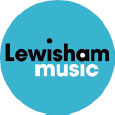
CHILTERN MUSIC THERAPY

Reset and reconfigure, July 2021
Connection and self-expression, November 2021
Caring for carers, March 2022
All written by music therapists from Chiltern Music Therapy, these three columns spanned several areas of wellbeing, with the first providing a much-needed refresher on what music teachers can do each day to support students’ mental health and wellbeing.
The second explores the benefits of singing with children with additional needs and disabilities, while the third column considers how music making in early years settings can help create safe and inclusive environments for carers of young children with additional needs.
Laura Al-Bandar, children and young people service's lead and music therapist at Chiltern Music Therapy, says: ‘Our team have really enjoyed writing for this column. As therapists, we are passionate about mental health and how music can be so powerful in improving wellbeing. We really wanted to share our thoughts and experiences on this so that we could inspire all the music teachers out there and remind them that what they do is so important to so many people.’
www.chilternmusictherapy.co.uk
LONDON YOUTH CHOIRS

Pastoral support in challenging times, August 2021
Youth voice in practice, December 2021
Isn't the music enough?, April 2021
London Youth Choirs (LYC) took a youth-led approach to their columns, and also invited new staff members to write to offer a fresh perspective.
Rachel Staunton, LYC artistic director, says: ‘Pastoral care and wellbeing have always been at the heart of LYC, but when the pandemic hit and turned our world upside down, we realised that we had a whole new set of challenges to deal with, and would need completely new ways to deal with them.
‘Music Teacher's column has offered us a wonderful opportunity to share what we've learned over these past two years. It has also given our members’ voices, feelings and attitudes the professional platform they deserve. The task of writing has itself been such a valuable (and rare) opportunity to pause and reflect on at least some of these changes.’
LEWISHAM MUSIC

Supersonic progress, September 2021
Sounds of safety, January 2022
Singing their own song, May 2022
The team at Lewisham Music have used their columns to document the journey of their new Youth Music funded programme, Sonic Minds: a two-year programme aiming to support young people at elevated risk of poor mental health through collaborative song writing and music production.
Robbie Hurst, Lewisham Music's communications, marketing and programme manager, says: ‘When Music Teacher magazine asked us to write for their mental health and wellbeing column, we couldn't say “yes” quick enough – we saw it as a great opportunity to highlight some key areas of what we do to a much wider audience, as the magazine offers such diverse, wide ranging content, and is an important read for the music education sector.
‘The column really allowed us to delve into the Sonic Minds programme, highlighting key research, participant feedback, our impact, and creative outcomes. The subject of young people's mental health has become all the more poignant over the last couple of years, with COVID-19 exacerbating an already persistent trend in the worsening mental health for young people; and nationally we have seen young people's mental health services struggling to cope.’
He adds: ‘We also used the opportunity to involve our Kickstart Scheme employee with the creative writing process, a valuable experience for them. It's been great reading about all the other organisations and how music is being used to help mental health and wellbeing, so Music Teacher truly has offered a great platform for raising awareness.’
ROYAL NORTHERN COLLEGE OF MUSIC

Positive growth, October 2021
PERMAnent wellbeing in times of uncertainty, February 2022
Third column to come on positive instruction in one-to-one music teaching
In Royal Northern College of Music (RNCM)'s first column, head of music, health and wellbeing Dr John Habron shares insight into using Dalcroze methods in the classroom to support student wellbeing, focusing on how moving through a space to music brings attention to the physical, social and emotional experiences of students.
In February, clinical psychologist and lecturer in musicians’ health and wellbeing at RNCM Dr Sara Ascenso demystifies the PERMA model of wellbeing, which stands for Positive Emotion, Engagement, Relationships, Meaning, and Accomplishment. She suggests that music teachers can find daily opportunities to cultivate these five wellbeing pillars with their students.
Here at MT, we hope that this column has been valuable to our readers so far. Thank you to each of our partners for their contributions.
If your organisation is interested in partnering with us for the next year of this column, please contact harriet.clifford@markallengroup.com.








